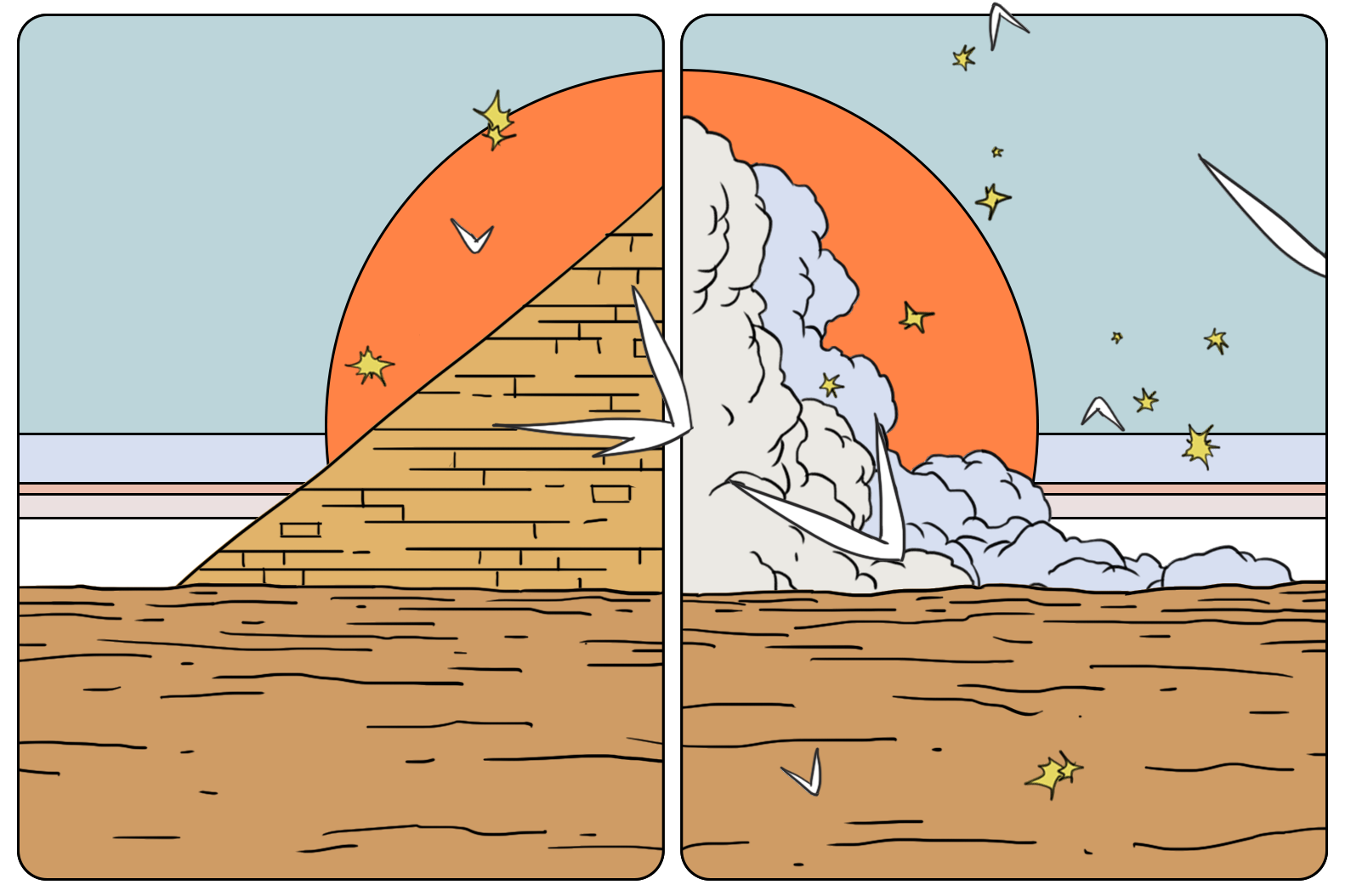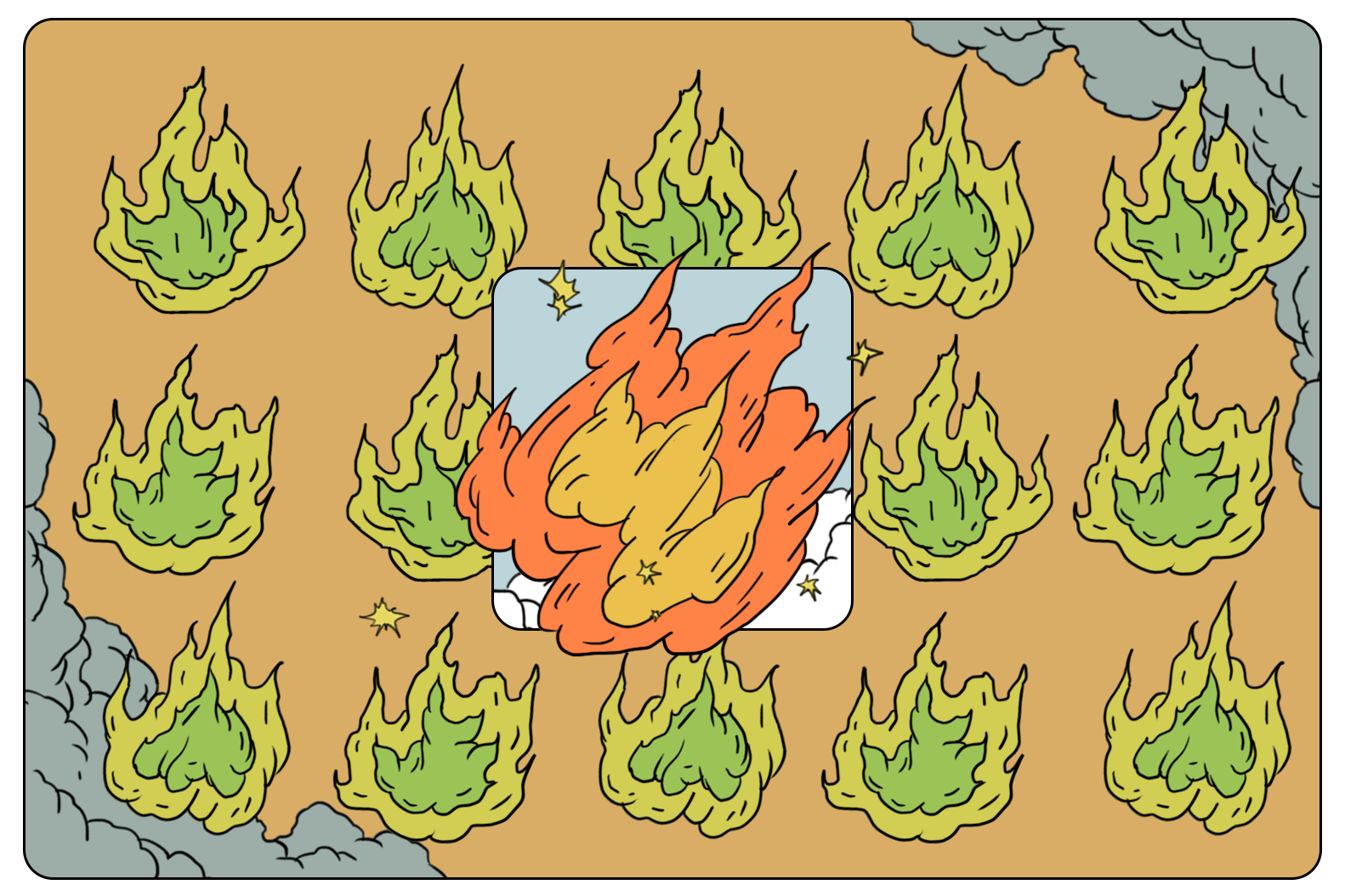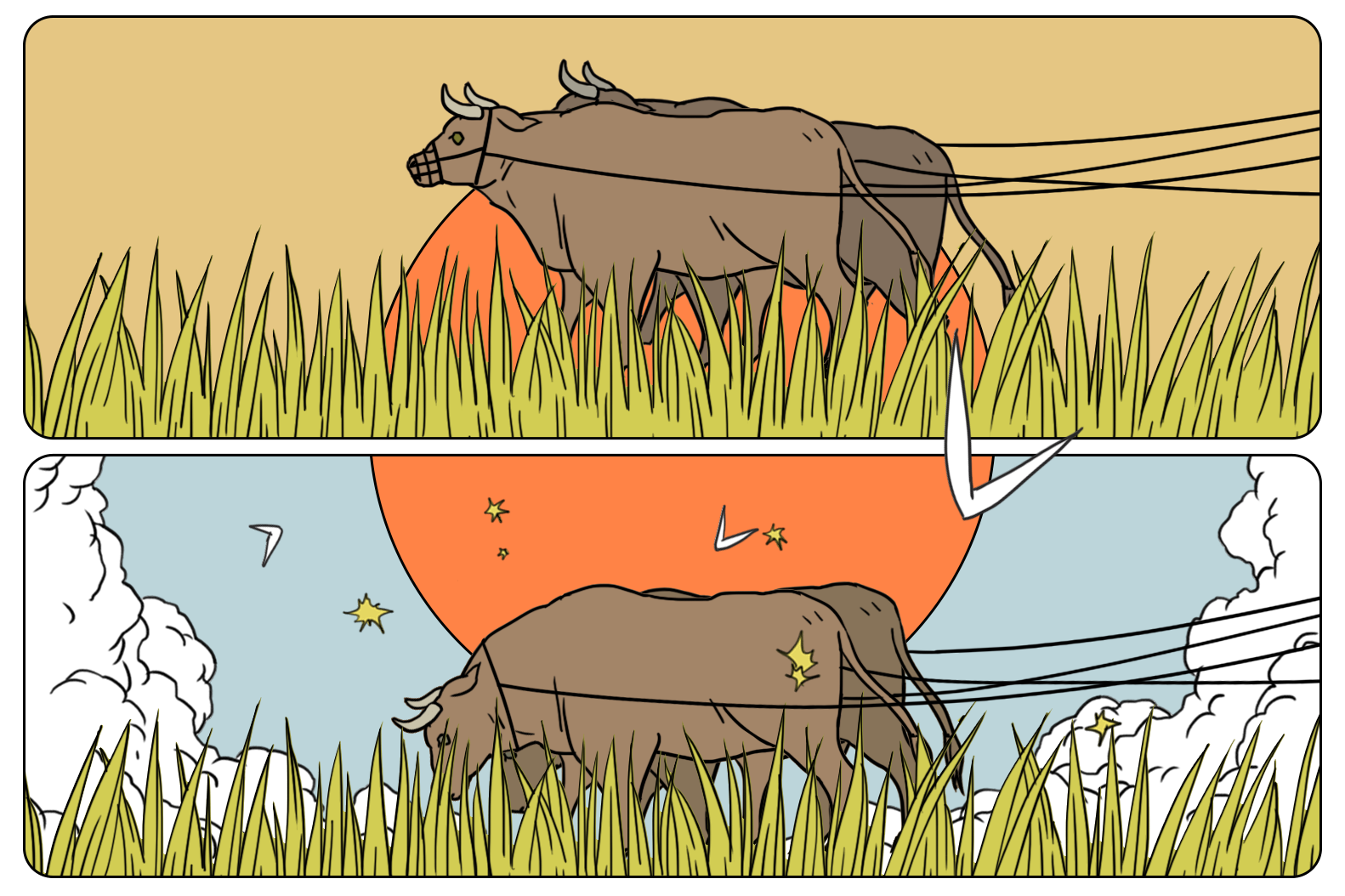Through 2024, every member of the Thirst Collective – Thir.st, Salt&Light, Stories of Hope, 还好吗 hhm.sg, Living Room, Collective Studio – has committed to reading the Bible from cover to cover.
We thought it’d be cool to pick out reflections and insights from our team’s readings to share with you. This time, dive deep into Deuteronomy with us!
Deuteronomy 5: Sabbath and rest
Juleen, Salt&Light
“but the seventh day is a sabbath to the Lord your God. On it you shall not do any work, neither you, nor your son or daughter, nor your male or female servant, nor your ox, your donkey or any of your animals, nor any foreigner residing in your towns, so that your male and female servants may rest, as you do.” (Deuteronomy 5:14)
We associate Sabbath with rest. As Deuteronomy 5:14 says, we are not to do any work. This includes our family, guests, servants and even animals! We rest, but rest isn’t the only thing we are to do on Sabbath. We are also to remember.
The Israelites were to spend their Sabbath remembering how the Lord, “with a mighty hand and an outstretched arm”, saved them from enslavement in Egypt. They were to remember their new freedom in the Lord.

What are we “enslaved” by today? Fear? Regret? Toxic habits? There’s hope! Christ has set us free from enslavement to our “old lives”.
Paul said to the Galatians: “It is for freedom that Christ has set us free. Stand firm, then, and do not let yourselves be burdened again by a yoke of slavery” (Galatians 5:1).
When Christ bore our sins on the cross, He freed us from enslavement to the burdens that hinder us from an abundant life as purposed by God. We are free to:
- Be called sons and daughters of God
- Be empowered by the Holy Spirit to live new lives right now
- Inherit a glorious, joyful eternity with Christ
Deuteronomy 8: Do not forget the Lord
Gracia Lee, Salt&Light
“Be careful that you do not forget the Lord your God, failing to observe his commands, his laws and his decrees that I am giving you this day.” (Deuteronomy 8:11)
Love how Moses reminded the Israelites countless times that God’s favour on them is not by their own merit, and also listed down all the times they were disobedient and provoked God to anger.
Trust Moses to keep the people humbled and in their place. But it’s a reminder that our salvation is really not by anything we have done or earned.
Deuteronomy 8:11 also stood out to me – when life is going well and we are in plenty, we must be careful not to let our pride grow.
Deuteronomy 12: Obedience on God’s terms
Theresa, Salt&Light
“Take heed to yourself that you do not offer your burnt offerings in every place you see but in the place which the Lord chooses” (Deuteronomy 12:13-14)
“You must eat them before the Lord your God in the place which the Lord your God chooses.” (Deuteronomy 12:18)
The place that the Lord designates matters, not just the act of obeying – that is doing right in the eyes of God.
It seems a small thing – often we may do something we consider obedience to God but may not be in the place, at the time, to the person He has told us to. It’s not a small thing to Him.
Yet God gives provisions for alternatives: if the tithe is too much to carry on a long journey or God’s chosen place is too far, then you may exchange it for money and take the money and go to the place chosen by God and spend the money and eat whatever you wish before the Lord (Deuteronomy 14:24-26).
It is essential to commune with God, to know Him and His heart to a level that we can understand what truly matters to Him (going to the place He has chosen and eating in His presence) versus the actual item of the tithe.
The Lord has been reminding me that “to obey is better than sacrifice” (1 Samuel 15:22) these past three days, and reading these verses amplifies that.
Deuteronomy 18: The Lord’s inheritance
Christina, Thir.st
“The Levitical priests—indeed, the whole tribe of Levi—are to have no allotment or inheritance with Israel. They shall live on the food offerings presented to the Lord, for that is their inheritance.” (Deuteronomy 18:1)
God being the only inheritance for the Levites meant that He was the sole focus and reason for their service and the centre of their calling and duty.
On the surface, it may have looked like a bad deal. Everyone has something tangible or useful – but the Levites don’t.
But what they actually have is the promise of God Himself, which clearly surpasses any value of land or earthly inheritance.

Deuteronomy 20: Do not be afraid
Nicole, Thir.st
“And shall say to them, ‘Hear, O Israel: you are advancing today to battle against your enemies. Do not lack courage. Do not be afraid, or panic, or tremble [in terror] before them.” (Deuteronomy 20:3, AMP)
In a war, it is natural to lack courage, be afraid, panic and tremble in fear. But it is supernatural to move forward in courage and bravery. I like how this isn’t an encouragement either, but it’s a command to be courageous and go.
May I have this attitude when it comes to evangelism or doing things for God, cause we’re all in a spiritual war.
Deuteronomy 22-23: Laws for everything
Christine, Salt&Light
God does think of everything. Laws on kindness, laws on separation (so that the Israelites do not do what their pagan neighbours do by mixing things), laws on sexual violation…
Deuteronomy 22:28-29 posed a real issue for me with the NIV translating it as “rape” so that it reads like a woman has to marry her rapist.
Then I read this and it became clearer that it means “lay hold of” and the scenario is clarified as more a case of a man managing to entice a virgin into a sexual relation. He then has to marry her.
The sanctity of sex remains for married couples only, and I see God’s consistency and care for the woman.
The provision of grapes and grain, and the laws about loans and what you do during harvest surely look out for the underserved. But, truly, my first thought when I read Deuteronomy 23:24-25 was: “Eh, can anyhow walk into my garden and eat my stuff?”
But then I think about how I treat my children. I tell them everything I buy is for them to eat. Just take. Don’t need to ask. And we are this way with our family. My husband doesn’t have to ask for permission to eat the ice cream I bought. So if I see my fellow Christians as family, then the verses don’t seem so intrusive.
Deuteronomy 25: Laws on various subjects
Isaac, Collective Studio
“You shall not muzzle an ox when it is treading out the grain.” (Deuteronomy 25:4, ESV)
I was confused when I started reading Deuteronomy 25. Why was there a sudden verse (Deuteronomy 25:4) which had no connection to the above paragraph? But it blew my mind after doing some digging…

Oxen are sometimes used to walk on piles of grain stocks after they are harvested. The weight of the oxen’s feet separates the grain from the stocks. When the process is complete, the grain is collected, and the stocks are discarded.
Muzzles were not to be attached to the oxen as they worked, they were to be allowed to eat from the grain they were treading. This verse is referenced a few times in the New Testament (see 1 Corinthians 9:9-12).
In Corinthians and Timothy, Paul refers to this verse and applies the principle contained within it to those who labour in the Church. People who are engaged in serving the Lord and caring for the believers have a right to be paid!
I pray for our fundraising projects this year, that they will be fruitful so that we can multiply greatly for the Kingdom through the works that we do.
Deuteronomy 31: Moses’ final instructions
Ming Feng, Collective Studio
If Moses was a coach giving a speech full of negativity to a team of players about to run onto the field, he would get fired.
I believe preaching “negative” and unpleasant topics in church is necessary and unavoidable. Preachers should never be selective in what they preach, and must always stay truthful to the Word.
Don’t just be positive only: “Do well, get blessed!” We also need to include the negatives: “Misbehave, get disciplined.”
Deuteronomy 34: Moses’ death
Felicia, 还好吗 hhm.sg
“No prophet has risen since in Israel like Moses, whom God knew face-to-face. Never since has there been anything like the signs and miracle-wonders that God sent him to do in Egypt, to Pharaoh, to all his servants, and to all his land—nothing to compare with that all-powerful hand of his and all the great and terrible things Moses did as every eye in Israel watched.” (Deuteronomy 34:10-12)
I’m reminded by the stark contrast when Moses first encountered God in the thorn bush (Exodus 3) and how he was when his life ended. At the start, he was hesitant, not confident, scared and felt he wasn’t good enough.
By God’s grace and Moses’s yeses to God no matter what he felt, he grew to become someone who served God powerfully in signs and miracles, and was like no other prophet in Israel (God knew him face to face!).
No matter how small we feel, as long as God has called us, He will help qualify us, as long as we obey His words and callings.
- What struck you most through your reading of Deuteronomy?
- How can you apply this biblical truth or principle to your daily life?









